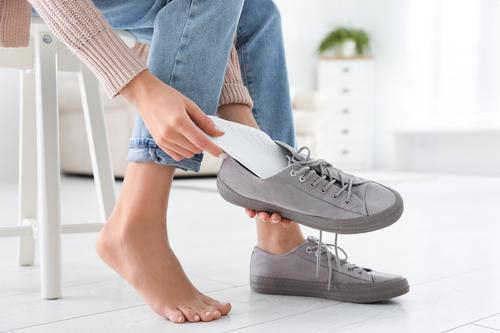If you have high arches, a condition known as cavus foot, you may be thinking that you won the lottery. After all, having flat feet can cause many problems…and you won’t have to worry about those, right? Well high arches are not better than flat feet. Each can cause problems in your body. (You can learn about some of the problems linked to flat feet here.) Fortunately, the pain associated with your arch height is not inevitable. In fact, you can manage flat feet and high arches to prevent heel pain, midfoot pain and more. Here’s what you need to know.
What Kind of Arch Do I Have?
In some cases, your arch height is pretty obvious. Severe flat feet or extremely high arches are ease to detect. However, some patients fall in murkier territory: their arches are a little too high, or their feet are a bit too flat. Not sure where your feet lie on the spectrum of arch height? Check out our easy test to determine your arch height—all you need is some water and a piece of paper!
Cavus Foot: How High Arches Affect Your Feet ![foot with a high arch]()
If you have been diagnosed with cavus foot, that simply means you have a higher-than-normal arch. You may have been born this way. Or you could have a neurological condition such as Charcot-Marie Tooth disease. Regardless of the cause, high arches can lead to midfoot pain, heel pain, arch pain and or ball of foot pain (metatarsalgia).
Why is that the case? When you have cavus foot, your ability to absorb the shock of walking decreases. Plus, weight gets distributed unevenly as you move, putting more pressure on your heel and the ball of your foot. As a result, you’re more likely to experience midfoot pain. You’ll also be more likely to develop hammer toes, and you’ll be more vulnerable to stress fractures. Knee and hip pain may develop as well. When you walk, you’re more likely to under-pronate (when you place excess weight on the outside of your foot as you walk.) And this movement pattern can increase your risk for injuries such as ankle sprains.
Relieving Midfoot Pain Due to High Arches
If your cavus foot, or pes cavus, is the result of a neurological condition, you will have to address your disease in addition to make accommodations for your high arches. But in our Houston podiatry practice, we can take several steps to prevent midfoot pain, heel pain and ball of foot pain.
First, we’ll talk about the shoes you’re wearing. You’ll want to look for styles that plenty of cushioning in the midfoot—this will help pad and protect your arch. A roomy toe box may also help accommodate the tops of your feet, reducing pressure on your toes. High-tops and wide heels can help provide foot and ankle stability, reducing your risk for sprain injuries. But while these features can be helpful, they will not typically be enough to prevent foot pain caused by high arches. So, to really protect your feet, we will likely fit you for custom orthotics.
Orthotics for Cavus Foot
Why do so many of our patients with high arches end up in orthotics? Here’s the deal. Orthotics are not like the over-the-counter insoles you can pick up at the local CVS. While those inserts may offer your foot a bit of extra cushioning, orthotics are customized medical devices. They are designed to directly address your foot’s biomechanical concerns. So, for patients with cavus foot, they can provide your midfoot with some-much needed support. They can correct under-pronation and improve your stability. And, by helping you walk in a more natural pattern—with evenly distributed weight—they can typically resolve midfoot pain and other concerns related to high arches.
Now, some patients with severe cavus foot may need additional support. In such cases, we may recommend bracing or additional supportive devices to help stabilize your lower limbs. Rarely, foot surgery may be necessary. But this is always a last-resort option for Houston podiatrist Dr. Andrew Schneider, who always leads with less-invasive treatment options.
Don’t Ignore Those High Arches: Seek Help Today
If you have high arches, your feet may not be hurting right now. But chances are that you will eventually experience heel pain or midfoot pain due to cavus foot. When that happens, you may start avoiding activities and workouts you used to enjoy. Simply making it through your daily activities could be come a challenge. But it doesn’t have to be that way.
As with so many foot issues, taking care of your high arches sooner rather than later can help prevent complications. It can also help you avoid injuries, deformities and the need for surgery. Want to reduce your risk for pain and injury? Do you wish to avoid invasive interventions? Call the office at 713-785-7881 or follow this link to request an appointment. When seen before serious complications develop, we can usually treat cavus foot patients with non-invasive interventions! So come in today and walk out with a more comfortable and natural gait!















